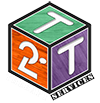Voice Therapy
The aim of voice therapy is to eliminate or improve problems with the creation of vocal sounds (phonation) in the larynx (voice box). After completing therapy, your voice should be stronger and sound like it did before. Voice therapy can also be used for prevention, to train your voice in order to avoid such problems altogether.
Voice therapy includes various individually tailored exercises that can be learned from a speech therapist, voice coach or respiratory therapist. Clients may be referred for voice therapy by a variety of healthcare providers including primary care physicians and ENTs.
Cognitive Therapy
We recognize that some changes in cognitive function such as processing speed, forgetfulness, and decreased attention happen, and are a normal part of aging. However, when we consider that one in 10 adults over the age of 65 has Alzheimer’s disease, as stated by the Alzheimer’s Association, it is not surprising that an overgeneralized belief that the development of cognitive deficits which impact an individual’s daily functioning, safety, independence, and general quality of life is a “normal” and untreatable process of aging.
Some individuals with cognitive impairments do not seek medical intervention due to the fear of receiving an Alzheimer’s diagnosis, limited awareness of their deficits, a belief that the deficits are “normal,” or the perception is that nothing can be done. Unfortunately, this misconception can be perpetuated by other members of the individual’s social group and even occasionally the individual’s healthcare providers.
Speech-language pathology is a powerful tool to help a variety of individuals navigate the frightening process of cognitive function changes. Individuals at every stage of the disease can benefit from intervention. Individuals with cognitive function changes may have any of the following conditions or diagnoses:
Language Therapy
Language therapy is a very broad label for many types of therapies that Time 2 Talk Therapy can provide for children. Language therapy addresses children with delays or disorders in the following areas:
• Listening Skills: How your child is able to understand what is being said to him or her and follow directions.
• Grammar Skills: Your child’s ability to use grammatical markers to form complete sentences.
• Vocabulary Skills: Your child’s knowledge of what things are called and her ability to understand those words when spoken as well as to recall and say the word when needed.
• Question Skills: Your child’s ability to answer and ask questions with a variety of structures.
• Social Language Skills (Pragmatics): Your child’s ability to use language to interact with others and follow social rules of conversation and play
• Literacy/Book Skills: Your child’s ability to read and write or use pre-reading skills such as book handling, recognizing print, etc.
 Time 2 Talk Therapy Services
Time 2 Talk Therapy Services